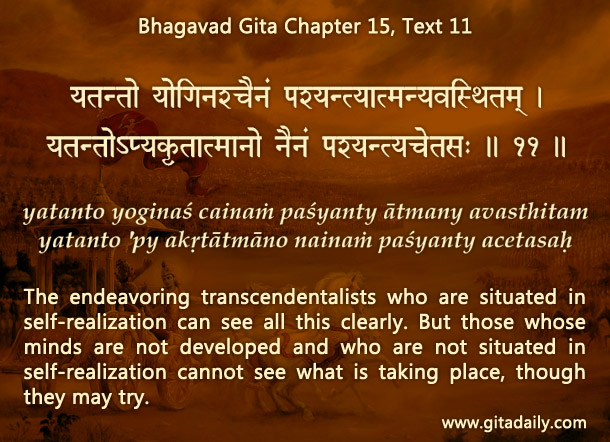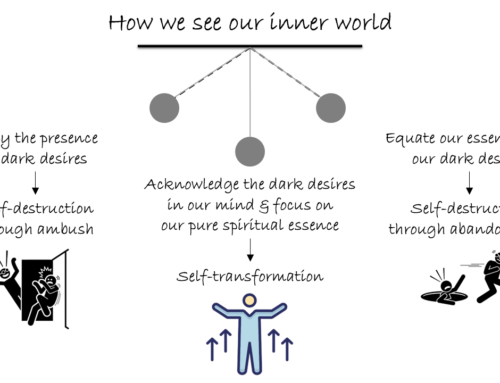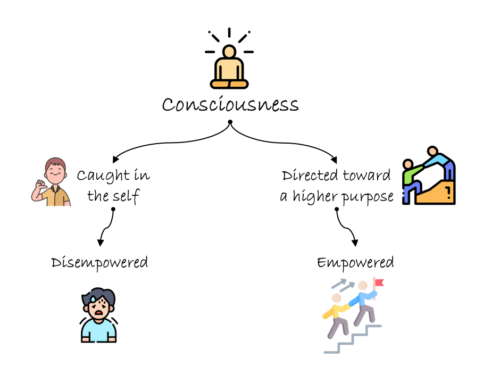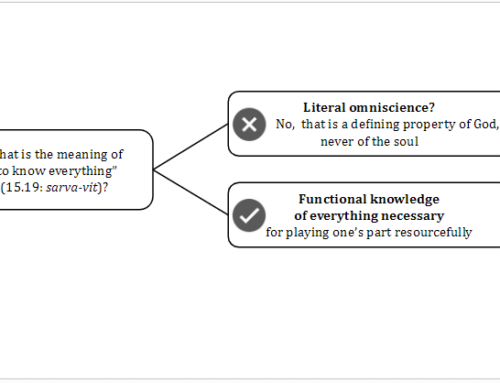The Bhagavad-gita (15.11) urges us to use jnana chakshu, or the eyes of knowledge, to understand the relationship between material reality and spiritual reality. Such a vision reveals how the soul is subordinated to material nature and how the Supreme Lord operates through material nature to provide for our needs.
While we are often driven by various bodily needs and desires, continuously running after one thing or another, the arrangement by which we can do the running and the arrangement by which there are things we can run after — all that arrangement is done by divine intelligence. The Lord provides food through natural processes, such as the arrangement of sunlight, so that edible food can grow on the earth (15.12-13) and arranges for digestion through a system we are only barely aware of (15.14). By gaining such eyes of knowledge, we can better appreciate the many invisible influences shaping our lives, including the forces of material nature and, most importantly, the Lord of material nature, Krishna, who has our best interests at heart.
Despite our diligent efforts to cater to our bodies’ needs and desires, believing they will bring us happiness, what we end up getting is only meager happiness and much distress. Instead, if we focus on loving and serving the Lord—who cares for us even when we do not care for Him—He can elevate us beyond the constant agitations and demands of our bodies. Such love and service can eventually liberate us, uniting us with Him in a bond of endless ecstatic love.
Summary:
- By the eyes of knowledge, we can see how the desires we think are ours are just us, uncritically, pandering to our body’s needs and urges.
- Through the eyes of knowledge, we further see how our capacity to run for material objects and material nature’s capacity to have objects we can run for are both arranged by the Lord.
- By understanding that serving the Lord is far more fulfilling than serving material nature, we can gain the determination to immerse ourselves in His remembrance.
Think it over:
- What are the two invisible influencers revealed by jnana chakshu in the Bhagavad-gita?
- What is the result of pandering to material nature? Describe an experience that confirms the result of such pandering.
- What happens when we direct our love and service toward the Lord? Share one experience of the result of such loving service.
***
15.11 – The endeavoring transcendentalists who are situated in self-realization can see all this clearly. But those whose minds are not developed and who are not situated in self-realization cannot see what is taking place, though they may try.





Leave A Comment